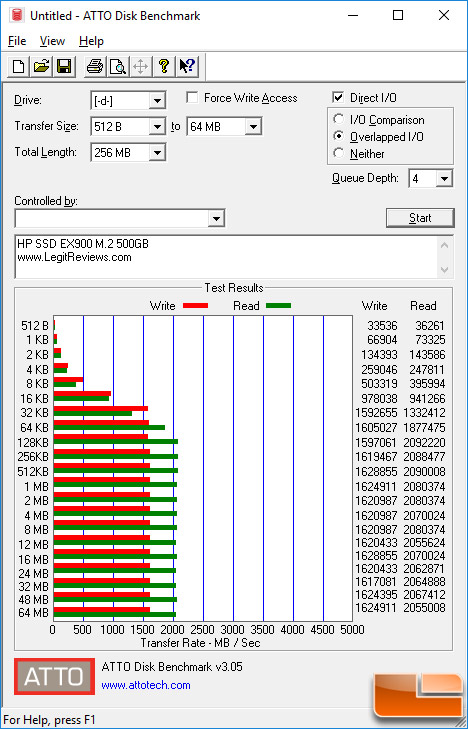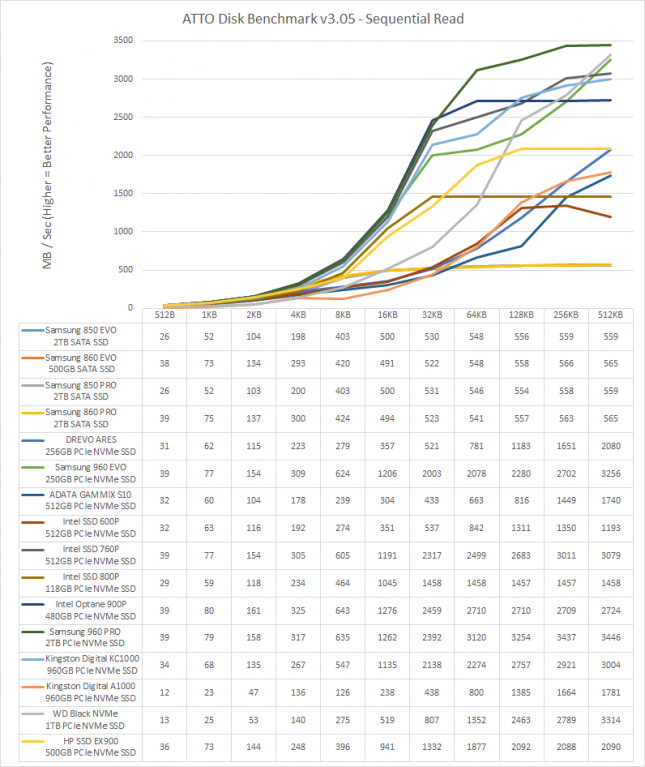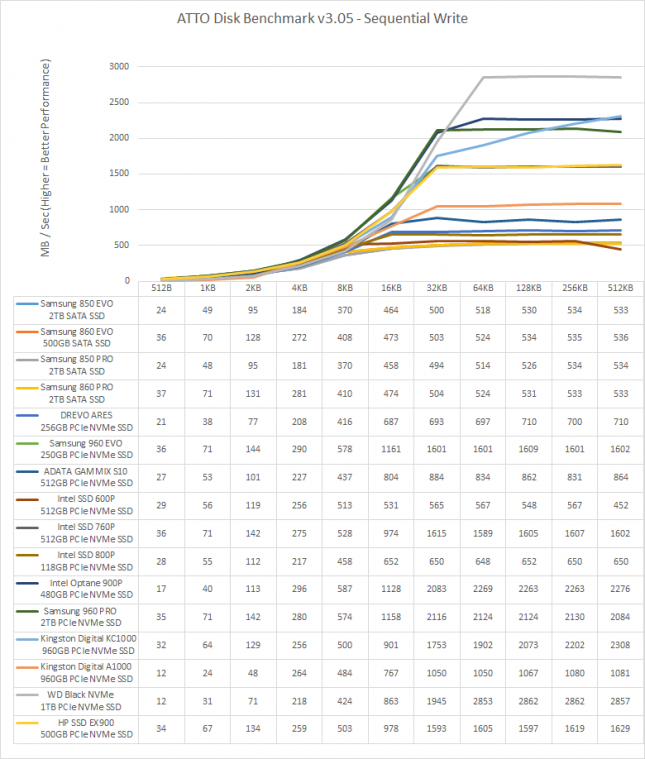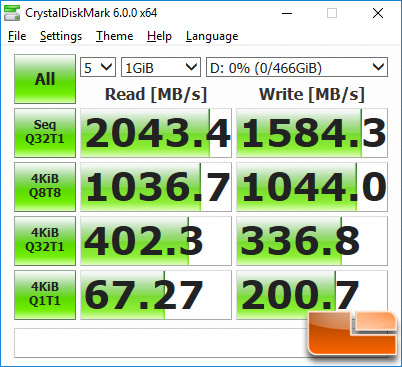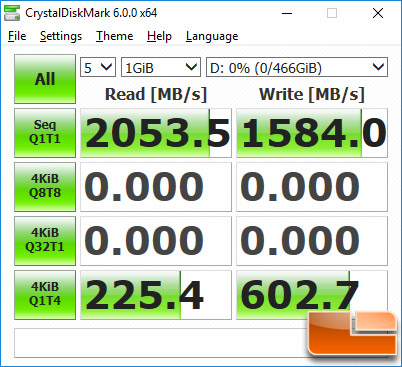HP EX900 500GB M.2 PCIe NVMe SSD Review
ATTO & CrystalDiskMark
ATTO v3.05
ATTO is one of the oldest drive benchmarks still being used today and is still very relevant in the SSD world. ATTO measures transfers across a specific volume length. It measures raw transfer rates for both reads and writes and places the data into graphs that can be very easily interpreted. The test was run with the default runs of 0.5KB through 64MB transfer sizes with the total length being 256MB.
ATTO – HP SSD EX900 M.2 500GB:
Benchmark Results: ATTO showed the HP SSD EX900 M.2 500GB PCIe NVMe drive reaching speeds of up to 2092 MB/s read and 1629 MB/s write in the standard overlapped I/O benchmark. This drive is rated at up to 2100 MB/s max sequential read and 1500 MB/s max sequential write, so we just missed the rated read speed and blew the write speed out of the water.
Benchmark Results: Compared to some other SATA III and PCIe NVMe SSDs, the HP SSD EX900 M.2 500GB drive performs well and tops 2 GB/s at the higher block sizes.
Benchmark Results: The HP SSD EX900 M.2 500GB drive topped has impressive sequential write speeds for its price point and basically mirrored the Samsung SSD 960 EVO 250GB drive as you can see from the chart and table above.
CrystalDiskMark 6.0.0 x64
CrystalDiskMark is a small benchmark utility for drives and enables rapid measurement of sequential and random read/write speeds. Note that CDM only supports Native Command Queuing (NCQ) with a queue depth of 32 (as noted) and shows the highest score of five runs.
CystalDiskmark – HP SDD EX900 M.2 500GB:
Benchmark Results: The HP SSD EX900 M.2 500GB drive topped out at 2043 MB/s read and 1584 MB/s write in the standard sequential write test that is done at QD32. Random 4K QD1 performance was 67.27 MB/s read and 200.7 MB/s write. Those 4K random performance numbers improved up to 402 MB/s read and 337 MB/s write at a queue depth of 32.
Manually running the sequential performance test at Q1T1 showed performance of 2053 MB/s read and 1584 MB/s write, which is mighty impressive. The sequential read performance is faster at QD1 than QD32.
Let’s look at some other benchmarks!

